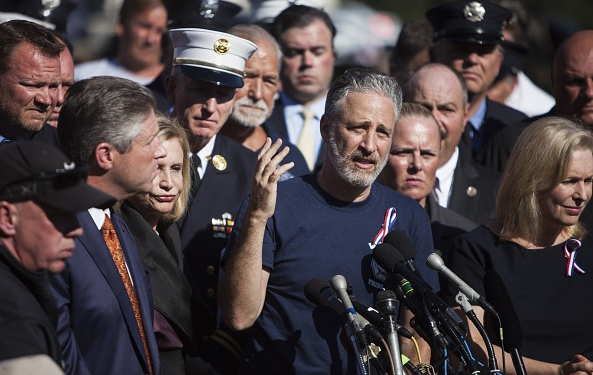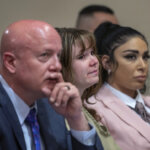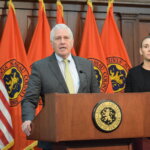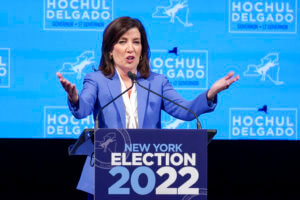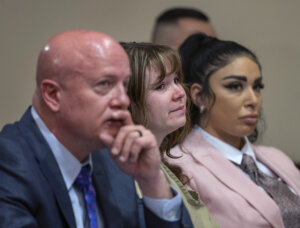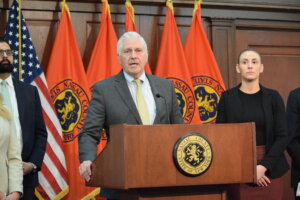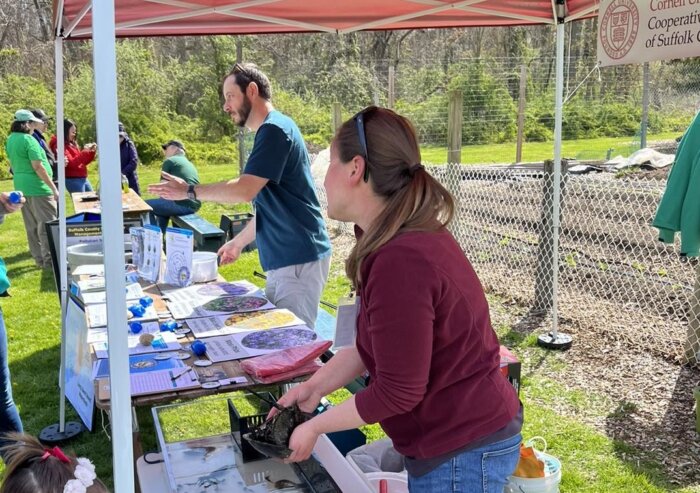John Feal and a group of Sept. 11, 2001 victim advocates have made 21 trips to Washington D.C. this year, or as Feal puts it, the equivalent of two months and eight days.
“When we leave D.C., we make sure we take extra showers because we gotta get that ‘D.C. smell’ off of us,” Feal of Nesconset tells the Press.
D.C. was indeed built on a swamp, but the “stench” Feal is referring to emanates from inside the halls of Congress, where bills with life-or-death implications get held hostage by elected officials and used as bargaining chips. Despite the odor, he intends to make one final trip.
“One more time,” Feal says, “to see the bill get passed.”
Feal is among a dedicated group of activists who has been lobbying members of Congress to extend the James Zadroga 9/11 Health and Compensation Act of 2010. The bill, which boasts bipartisan support, would permanently fund medical care for the thousands of 9/11 first responders—police, firefighters, construction workers—who selflessly searched the wreckage at Ground Zero even as the rubble still smoldered. At the time, no one considered what the toxic stew of chemicals festering in the pit would mean for the health of those combing through the debris. Fourteen years later, nearly 2,000 people have died as a result of their exposure and tens of thousands are receiving treatment for insidious diseases that many simply can’t afford to pay for.
That’s why Feal and others like him are imploring Congress to act.
The World Trade Center Health Program, which was established under the Zadroga Act, expired in October. Another part of the act, the Victim Compensation Fund, is set to sunset next October. The Zadroga Act’s coffer is about to run out. It needs a multi-billion-dollar infusion, advocates say.
The bill currently has all the sponsors it needs in both the Senate and the House of Representatives but it has yet to be called for a vote by the Republican leadership. One scenario had the act being tied to a federal transportation bill, but that failed. The most likely scenario is that the 9/11 health care bill will be included in an all-encompassing year-end omnibus spending bill. Long Island’s entire Congressional delegation supports it, as do New York’s US Sens. Chuck Schumer and Kirsten Gillibrand, both Democrats. The bill also has received additional support from celebrities like former Daily Show Jon Stewart, who has also been making trips to D.C. to lobby support.
In his guest return to the Daily Show Monday night, a fuming Stewart took aim at Sen. Mitch McConnell (R-Kentucky), the Senate majority leader.
“Sen. Mitch McConnell doesn’t give a shit about anything but politics,” Stewart said, staring right into the camera. First responders, Stewart said, were told the Zadroga Act would be included in the transportation bill but the senator pulled it because he “couldn’t get concessions about loosening oil export regulations.”
Locally, LI’s Congressional delegation have thrown their support behind 9/11 first responders who are fighting serious illnesses.
“It is absolutely essential that Zadroga be reauthorized without delay,” said Rep. Peter King (R-Seaford) in a statement.
Sen. Gillibrand, who was among those who gathered at a rally in Lower Manhattan Sunday to push for the act’s extension, said on her Facebook page: “We owe it to our heroes and their families to ensure the health care they rely on for monitoring and treatment is there for them when they need it.”
We owe it to our 9/11 heroes & their families to permanently extend #911health funding this week. We must come together and #renew911health.
— Kirsten Gillibrand (@SenGillibrand) December 7, 2015
The 9/11-related illnesses our brave first responders suffer from won’t expire, neither should their healthcare. Time to #renew911health.
— Kirsten Gillibrand (@SenGillibrand) December 6, 2015
Despite his misgivings with Congress, Feal tells the Press he’s confident it will get passed before next week’s omnibus deadline.
“We’re going to be there to make sure the bill does go, and hopefully it’s a victory press conference and rally,” Feal says.
Feal and other advocates met with Sen. McConnell last week after camping outside his Washington D.C. office. McConnell pledged to support a bill that would permanently fund the program along with $4.6 billion for the Victim Compensation Fund, Feal says.
“He gave us his word,” Feal says of McConnell, who had been accused of holding up the bill. “But we don’t believe anything until we see it.”
The implications of it not passing can be life shattering, he says.
“Many will die without the program because they can’t afford their medications, and many will be living on the streets when they die because they’ll be evicted from their homes and not be able to pay rent or mortgage,” he warns.
The process has Feal pissed. He’s pissed that securing funding has stretched the entire calendar year. Pissed that politicians use the bill as a “political pawn.”
“We’re just dismayed and literally disgusted by the way it’s going down,” he says.
“We have zero tolerance for their bullshit,” Feal adds.
If the bill doesn’t pass, Feal has threatened to get arrested.
“Whatever it takes to get me arrested,” he says convincingly, “I’ll do it.”
Feal has been advocating for better health care for first responders for a dozen years. In 2005, he created the Feal Good Foundation, which to date has donated $4 million. He was also instrumental in getting the Zadroga Act passed in 2010.
The bill covers more than 60 forms of cancer and hundreds of other 9/11-related illnesses. More than 72,000 people are enrolled in the World Trade Center Health Program, of whom 33,000 receive treatment for multiple maladies.
More than 1,700 people who worked on the Ground Zero site have died from 9/11-related illnesses, Feal says. On Long Island, the World Trade Center Health Program treats about 7,000 annually.
Feal has been to 149 funerals. The 9/11 death toll keeps climbing. Former FDNY battalion chief James Costello died from a 9/11-related disease on the day before Thanksgiving.
“I cry at every one–emotionally it gets harder,” Feal says. “But when I leave, I get angrier. The bill could get passed as we speak right now, and I’ll still be angry cause it took 14 years to do the right thing.”
Costello was 52 years old.



